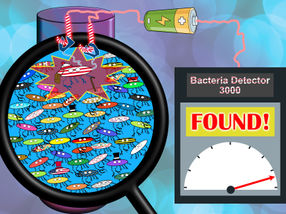Health assessment of the first analysis results on fipronil levels in foods in Germany
The German Federal Institute for Risk Assessment (BfR) prepared a risk assessment on 30 July 2017 on the basis of a notice in the European Rapid Alert System for Foods and Feeds (RASFF) according to which levels of up to 1.2 mg/kg of fipronil had been detected in chick-en eggs and chicken meat in Belgium (linked right next to the article).
On the basis of new, official analysis results from Germany, the BfR has made an assess-ment of what little information has been conveyed up to now. The data from Germany on fipronil levels reached values of up to 0.45 mg/kg in chicken eggs. According to the latest available scientific information, this data situation shows that an acute health risk to the ob-served consumer groups, including children, is unlikely.
The health risk assessment of the fipronil levels measured in chicken eggs was made on the basis of an exeedance of the acute reference dose (ARfD), which is defined as the quantity of a substance per kg body weight that can be ingested with one meal or in the course of one day without any recognisable health risks for consumers.
The BfR received official analysis results from Germany on levels of fipronil (measured as the sum of fipronil and its sulfone metabolite) of up to 0.45 mg/kg in chicken eggs. If the Eu-ropean consumption data (EFSA PRIMo, Version 2) are used as the basis, a utilisation of the ARfD of up to 62% results for the consumer groups observed, including children.
The BfR has determined a fipronil level of 0.72 mg/kg for chicken eggs, at which the ARfD is not exceeded in any of the observed consumer groups, including children. Processed as well as unprocessed products were taken into consideration in the risk assessment. An acute health hazard is unlikely if the estimated maximum intake quantity remains below the ARfD.
According to the currently available scientific information, this data situation shows that an acute health risk to the observed consumer groups, including children, is unlikely.
Most read news
Other news from the department business & finance

Get the food & beverage industry in your inbox
From now on, don't miss a thing: Our newsletter for the food & beverage sector brings you up to date every Tuesday and Thursday. The latest industry news, product highlights and innovations - compact and easy to understand in your inbox. Researched by us so you don't have to.




























































